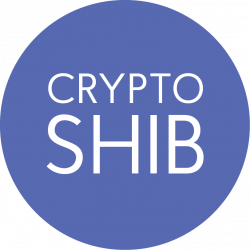Regulatory Structures Should be Embraced to Provide a Safe and Secure Open-Source DeFi System

When it comes to making money with crypto, users have many different avenues and opportunities to contemplate. Investors may consider personal investments in coins, earn interest by participating in DeFi (Decentralized Finance) lending pools, stake coins to earn additional coins, and much more.
Many who are new to the space recognize the large gains being made by others but do not necessarily know where to start, as crypto and blockchain technology takes a lot of understanding before you can fully feel comfortable investing your own capital. And of course, these investments come with their own risks, market pullbacks, and of course the biggest, a bug that could cause a DeFi platform to be exploited. Regulations can help investors feel at ease and comfortable with DeFi and crypto platforms, driving further adoption, as a crypto ecosystem without regulations is essentially a wild west where scams run rampant and rug pulls are a daily occurrence. Within the last month alone, we’ve witnessed a multi-million dollar hack of ThorChain, and this is not something the community can withstand over time or all trust is lost. Hacks like these happen because of poor details in the security of the blockchains, and result in major financial loss.
Regulatory frameworks are needed in the space and many teams understand this. They know that revolution needs rules for institutional adoption and comfort when participating in these new markets. DeFi platforms are willing and able to help regulators across many jurisdictions around the world to ensure that markets are safe, and everyone is included. One of these platforms is Nimbus, which was actually the first company that committed to the Regulatory Tool-Kit for DeFi as presented by the World Economic Forum. AAVE, the largest decentralized money market protocol, has been stressing that if a protocol is totally decentralized, there is nothing regulators can do. To make life easier on regulators, they decentralize to the point that no employees are paid by a company, rather paid via DAO’s which regulate and govern the protocols. They’re also hoping that the SEC will go down the route of allowing protocols 3 years to fully decentralize their networks in order to avoid severe regulations that could stifle innovation.
Regulatory solutions suggested by Nimbus and other platforms include technical, finance, and consumer rights.
- On a technical level, suggestions are made to regulators in North America, Europe, Asia, and the Middle East to make all blockchains public; so that all transactions are public and displayed. This helps maintain decentralization and trust in networks, as private blockchains can be abused to hide transactions from authoritative groups.
- Financial regulatory solutions for crypto would help investors know which cryptos to invest in, as some projects are clearly unregistered securities, while others like Bitcoin have been determined to be commodities, and hence are safe to invest in.
- As for consumer rights, regulations can ensure that data remains private for users during transactions, and that transactions do not put consumers at risk.
Additionally, DeFi has to be open-source. This is essential, as an open-source protocol can be examined by white hat hackers or ethical hackers. White hats look to find bugs that bad faith hackers would otherwise exploit for money. The value this can bring to investors is massive, as they usually patch gaps that would otherwise be used to enter blockchains from bad actors. As well, when bounties are offered, it means hackers have monetary incentives to find leaks to improve the system. The more patches being made by the white hat ecosystem ensure a safer DeFi experience for all market participants globally. As well, to be a legitimate DeFi company, protocols use smart contracts and pull outside data from the internet to keep rates balanced across all platforms. This encourages competition and gives investors better real-world rates. Additionally, a crucial step for protocols is an independent, third-party audit. This audit must be made available to the public so investors can be confident in the code and their money kept on these protocols.
Nimbus Platform Ltd
Malta – Saint John, SGN 9030
